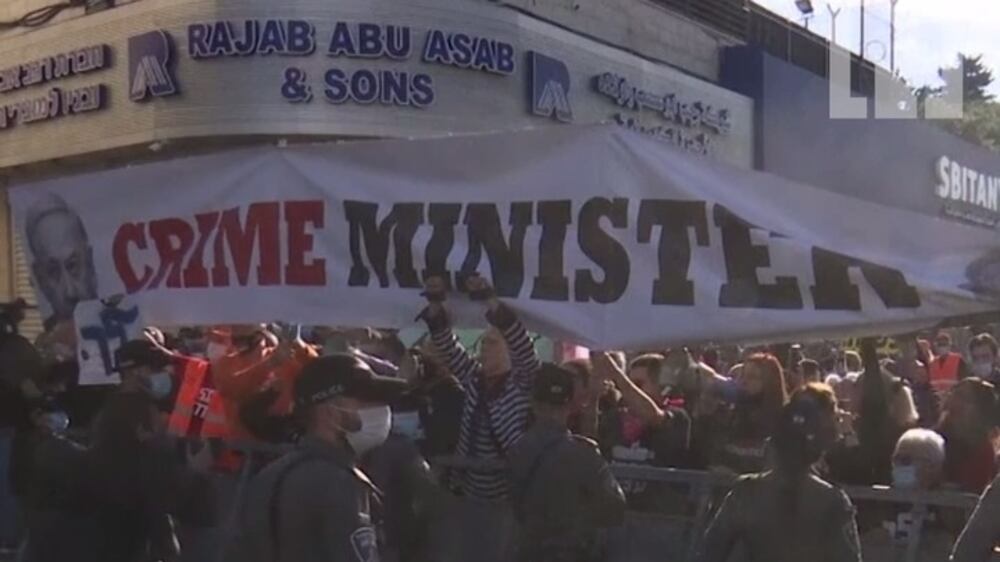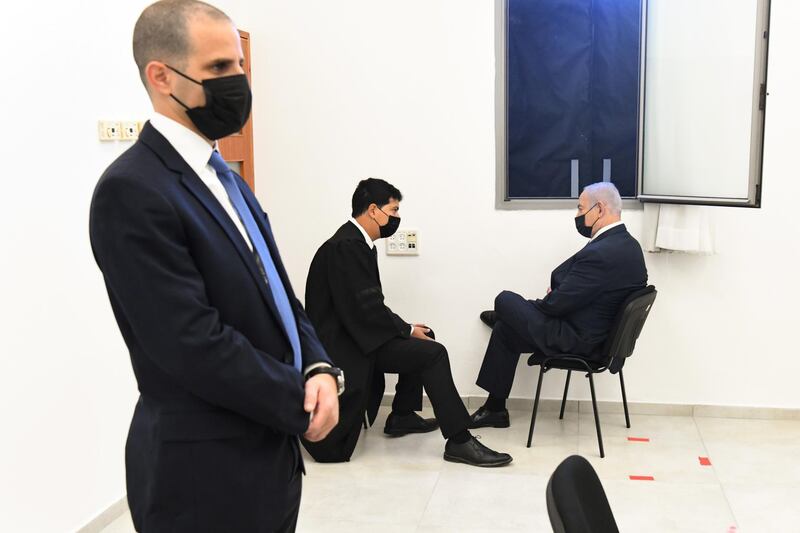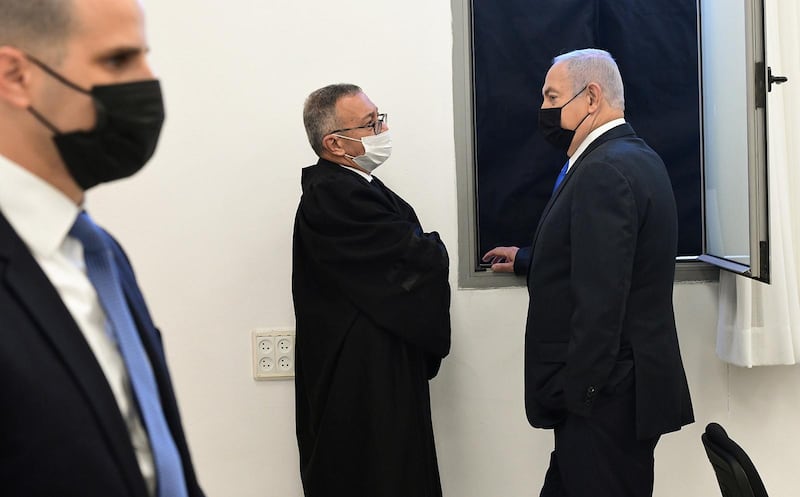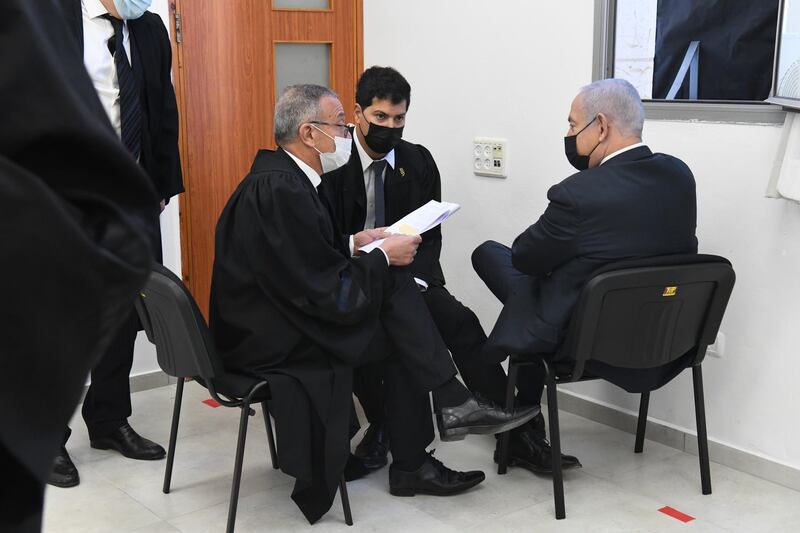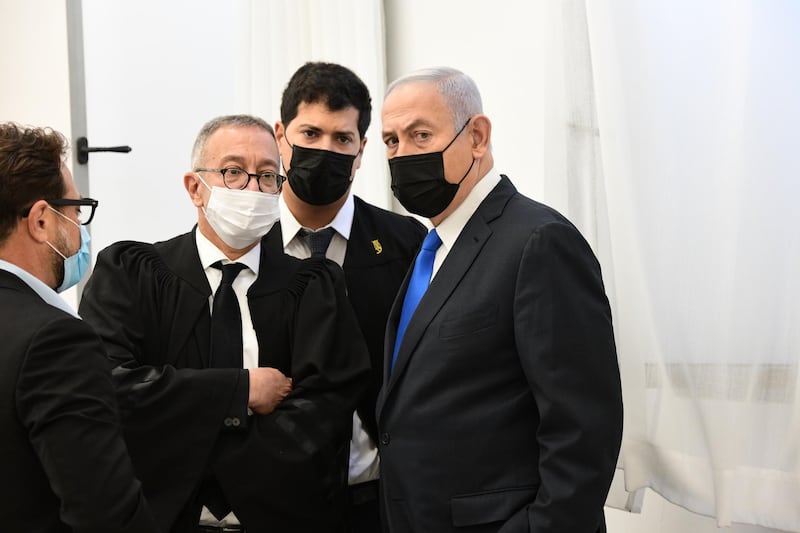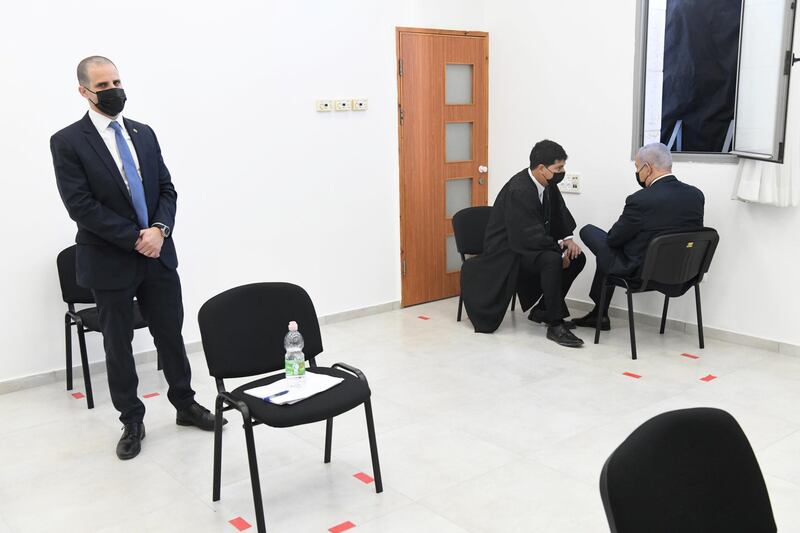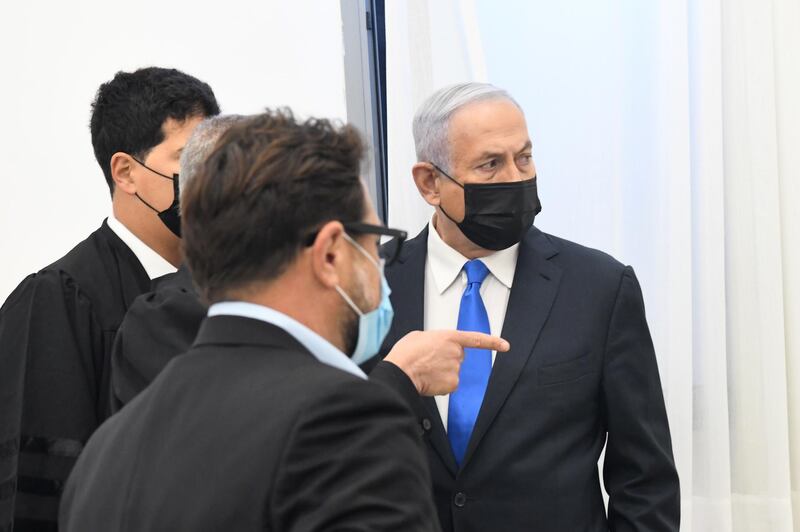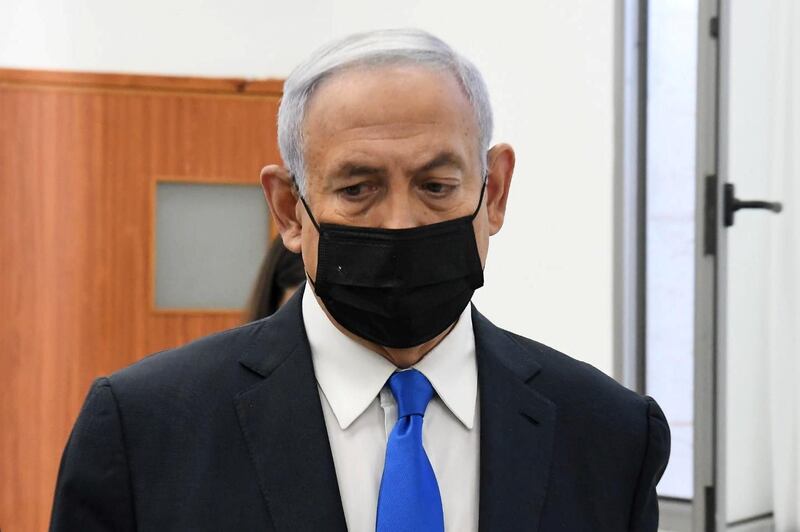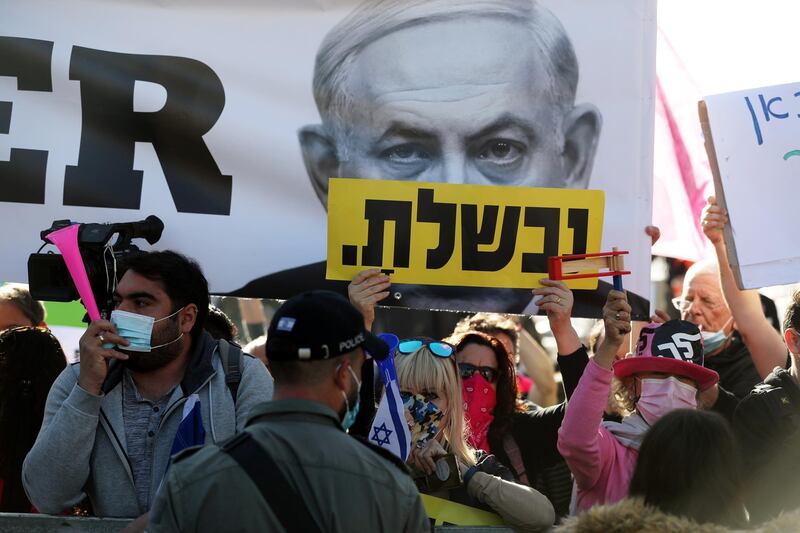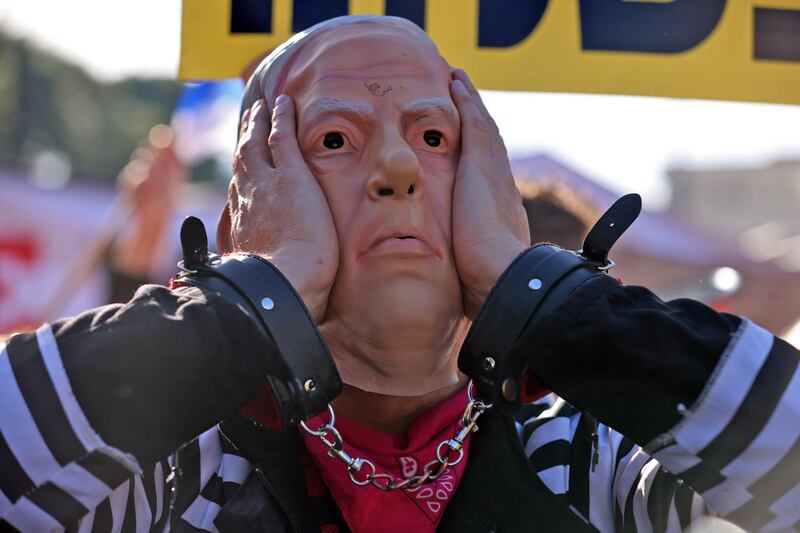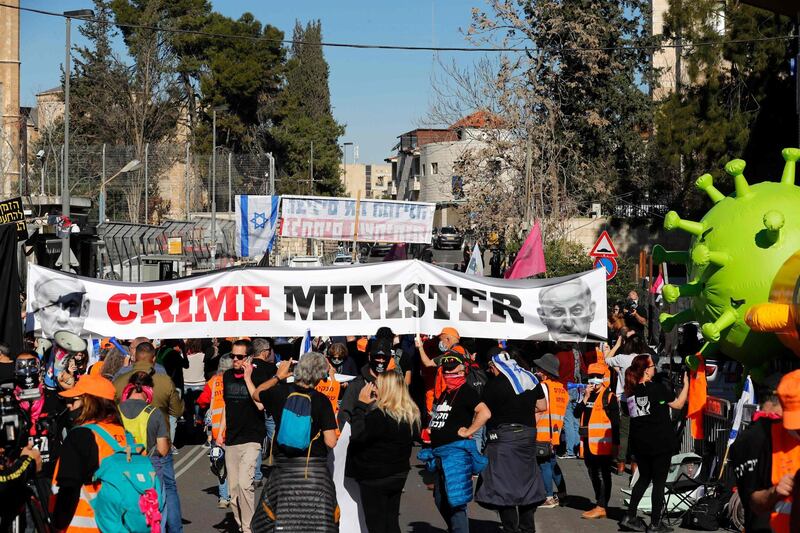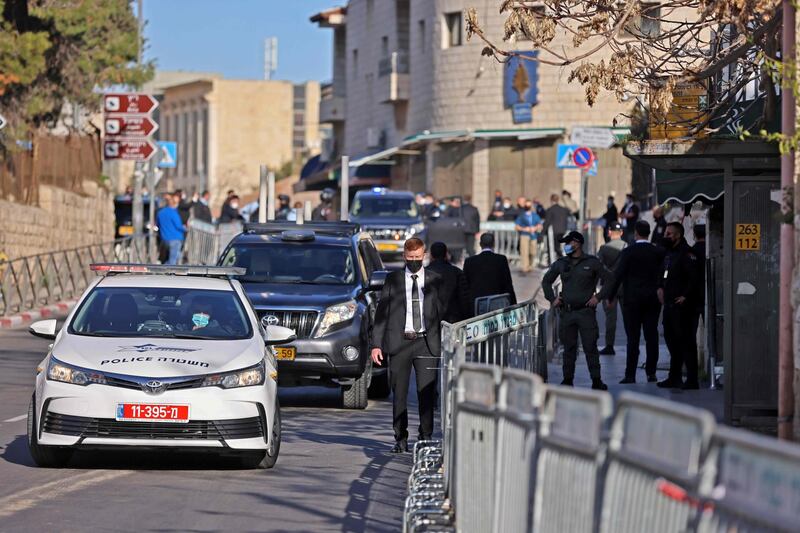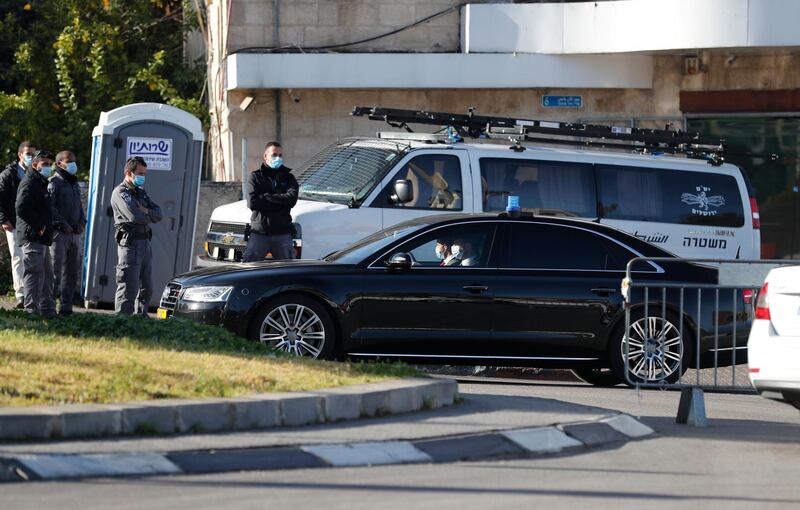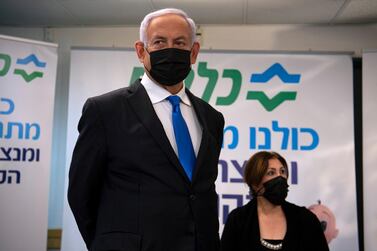Israeli Prime Minister Benjamin Netanyahu appeared in a court on Monday to face corruption charges, as protesters rallied outside only weeks before the country goes to the polls.
With the sound of demonstrators outside reverberating in the Jerusalem court, Mr Netanyahu pleaded not guilty to three separate cases brought against him.
"I confirm the written answer submitted in my name," the prime minister said, declining to deliver a statement to the court.
Israel’s longest-serving leader is facing charges of bribery, fraud and breach of trust over allegations he sought positive media coverage and received lavish gifts including champagne and cigars.
Netanyahu faces the wrath of protesters
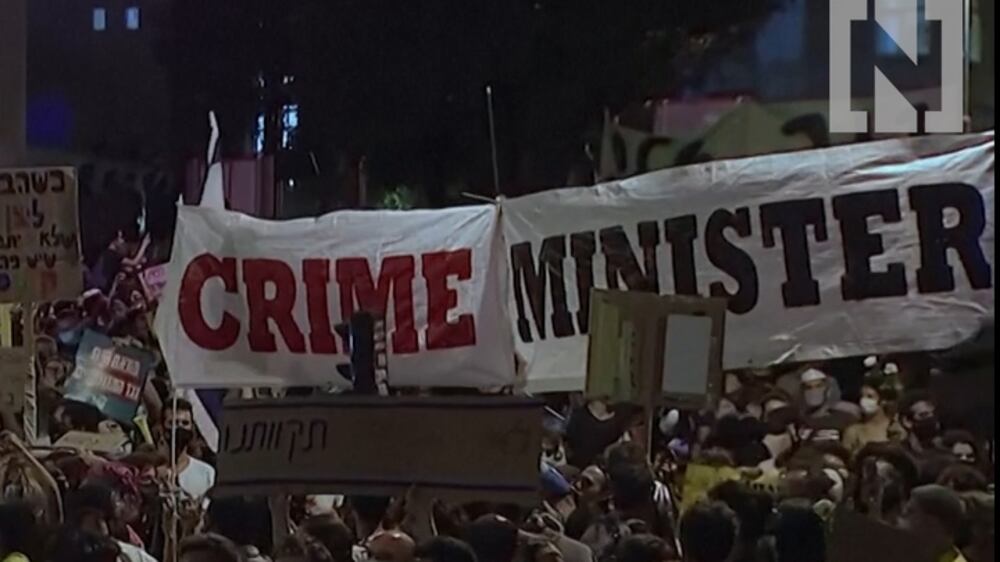
Bribery carries a sentence of up to 10 years, while the other charges have a maximum prison term of three years.
Mr Netanyahu, who wore a face mask, took notes during proceedings before stepping out of the court while his lawyer addressed the panel of three judges. Monday's hearing paves the way for the evidentiary stage of the trail and witness testimony.
It marks only the second time Mr Netanyahu has appeared in court since his trial began in May, following several delays related to the coronavirus pandemic.
While he entered court in May after being sworn in to lead a new government, following a successful nationwide lockdown to tackle coronavirus, the intervening months have been beset by upheaval.
The coronavirus death toll has soared from a little over 200 in early May to more than 5,100 today, out of a population of nine million, despite two further shutdowns and the launch of world's fastest vaccination drive late last year.
Mr Netanyahu’s coalition government collapsed in December after it failed to secure a budget for either 2020 or this year, thrusting the electorate into a fourth round of polls in less than two years.
Frustrated by the prime minister's handling of the pandemic and its economic fallout – as well as the looming corruption charges – protesters have held weekly rallies across Israel for months.
"We're here to protest against everything that's going on. Against all the corruption," said Rotem Zakay, 33, standing outside the court, clutching a drum.
“We want him to basically stand trial and get convicted,” said Ms Zakay, who manages a stable in northern Israel.
"We want to make sure that this country stays democratic in every possible way," she said, amid a heavy police presence around the court in occupied East Jerusalem.
The prime minister was indicted in November 2019 and is not obliged to step down until all appeals have been exhausted, a process which could take years.
The most serious charge of bribery centres around a deal he allegedly struck to gain favourable coverage from the Walla news site. Mr Netanyahu is accused of taking regulatory steps to favour telecoms firm Bezeq, whose majority shareholder Saul Elovitch owns Walla.
The prime minister also allegedly sought positive coverage from the Yedioth Ahronoth newspaper, in exchange for tabling legislation that would damage a rival outlet.
Lastly, Mr Netanyahu and his wife Sara are accused of receiving about $200,000 worth of luxury gifts from Hollywood mogul Arnon Milchan, an Israeli, and Australian billionaire James Packer.
Demonstrating outside the court, Tamar Yavin, a cyber consultant, described the prime minister as a corrupt person.
“He must pay for it. He can’t avoid trial,” she said, having taken the day off work to travel from Tel Aviv.
Around her, demonstrators blew vuvuzelas, whistles and spoke through loudspeakers, while others chanted or sang.
Ms Yavin also hoped for a political future without Mr Netanyahu, in which there would be greater co-operation between the country’s Jewish majority and Arab-Israelis.
“It’s a great challenge because it’s very different from everything we know from politics,” she said.
Mr Netanyahu's Likud stands to win about 30 seats on 23 March, according to recent polls, emerging as the largest party. But he and his allies are set to fall short of a majority in the 120-seat parliament.
With six weeks of the campaign remaining, however, Mr Netanyahu’s core supporters are standing firm and the sway of undecided voters may secure more seats for Likud.
“The remarkable thing is the stability of his base,” said Dahlia Scheindlin, a pollster and political analyst. But there remains a risk some could defect to the new party of a former senior Likud politician.
“There's only one thing that matters. Will any of the current supporters of Likud… move to Gideon Saar?” asked Ms Scheindlin. “So far, I don’t see that happening.”
Mr Netanyahu's court appearance is unlikely to be a deciding factor for voters, she told The National, because Israelis have already considered the prime minister's legal woes in previous elections.
“It’s been taken into account three times already,” said Ms Scheindlin. “The chips have already fallen around that back in April 2019, because we knew that this would happen.”
